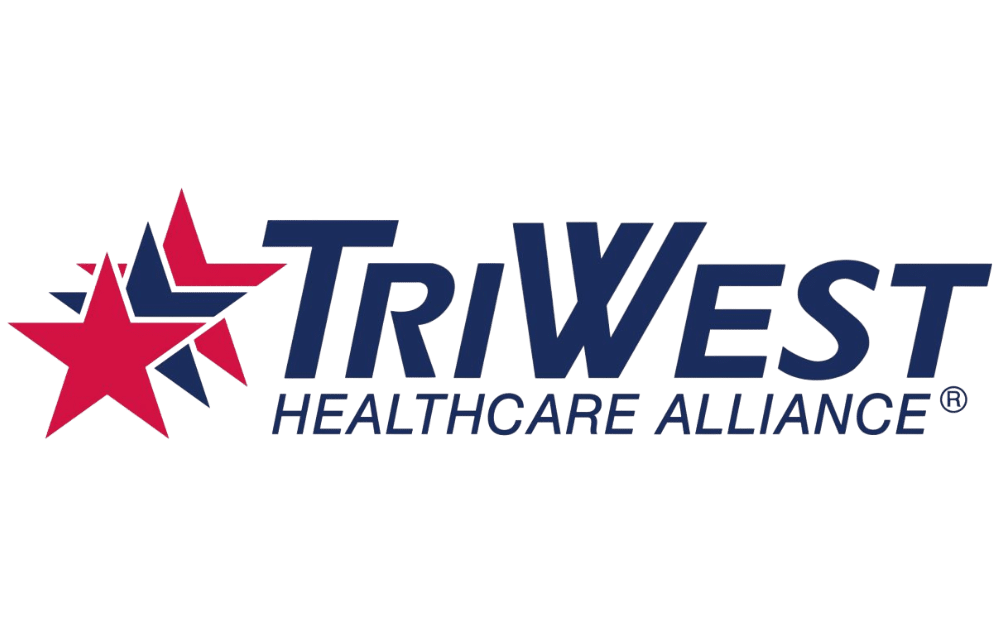Inpatient rehab alcohol
Understanding the Nature of Addiction
At Mile High Recovery Center, we comprehend the complexities involved in battling addiction. Addiction is often a multifaceted issue, intertwining physiological dependencies with emotional and mental struggles. Alcohol, in particular, poses unique challenges due to its ubiquitous presence in society and its legal status.
Inpatient rehab alcohol treatment is designed to address these complexities by providing a structured and supportive environment. Our focus is on helping individuals understand their own relationship with alcohol and uncovering underlying issues that may contribute to their dependency.
Our Philosophy on Recovery
The foundation of our approach at Mile High Recovery Center is built on the belief that recovery is a deeply personal journey. While structured programs provide essential guidance, we prioritize personalized care. This means tailoring each treatment plan to the individual’s specific needs, ensuring that their experience is not only healing but transformative.
We also recognize the importance of addressing co-occurring mental health conditions. Anxiety, PTSD, depression, and other disorders often accompany addiction, and our dual-diagnosis model ensures these are treated concurrently, promoting holistic healing.
What to Expect in Inpatient Rehab Alcohol Treatment
Initial Assessment and Admission
- Comprehensive medical and psychological evaluations.
- Development of a personalized treatment plan.
- Immediate access to 24-hour support and care.
The Daily Routine and Therapy
- Individual and group therapy sessions designed to foster community and connection.
- Experiential therapies such as equine-assisted activities and adventure therapy.
- Cognitive therapies to reframe thought patterns, such as CBT and DBT.
The Role of Family and Community
As we navigate the road to recovery, the involvement of family and community cannot be overstated. At Mile High Recovery Center, we weave family therapy into our programs to help rebuild trust and facilitate open communication.
Our community extends beyond the walls of our Denver location. Our strong alumni network and community events offer ongoing support, proving that recovery is not just a process but a lifestyle change.
Addressing Co-Occurring Disorders in Rehabilitation
Many individuals facing alcohol addiction also grapple with mental health disorders, a combination that can complicate the recovery process. Mile High Recovery Center is equipped to handle these challenges with our dual-diagnosis capabilities. This involves a balanced approach of psychiatric care and personalized therapies.
Our team of experienced professionals understands that co-occurring disorders are interlinked with substance use. Through integrated care, we ensure that both are treated in tandem, allowing for more sustainable recovery outcomes.
The Importance of Integrative Therapies
We believe that each person’s path to recovery is unique, which is why Mile High Recovery Center offers a wide array of integrative therapies. Beyond traditional counseling, we incorporate therapies such as EMDR for trauma recovery, and art and music therapy to unlock creative expression.
Our experiential therapies provide opportunities for individuals to reconnect with themselves and the world around them in safe, supportive settings, fostering growth and self-discovery.
Our Approach to Medical Management
Inpatient rehab alcohol treatment at our center often involves medication-assisted treatment, where appropriate. Suboxone and Vivitrol are among the medications used to support alcohol addiction recovery, under careful supervision of our medical team.
Our goal is to minimize withdrawal symptoms and ease the journey through detoxification. Each medication plan is tailored to support the individual’s unique treatment goals and is continually assessed for effectiveness.
Navigating the Financial Aspects of Treatment
Insurance and Costs
- Mile High Recovery Center accepts most major insurance plans, including Aetna, Cigna, and Blue Cross Blue Shield.
- Our admissions team assists with insurance verification to streamline the financial process.
- We also offer financing options to ensure that financial concerns do not become a barrier to accessing care.
Supportive Housing and Alumni Network
Our continuum of care extends beyond initial treatment. We offer supportive housing options that provide a bridge between inpatient rehab alcohol care and full reintegration into everyday life. These environments foster accountability and community support.
The Mile High alumni network is a vibrant community of past participants who engage in ongoing support activities. This network serves as a testament to the long-term success of our programs and the strength of connections formed during treatment.
The Urban and Natural Elements in Recovery
Positioned in Denver, Mile High Recovery Center skillfully blends the urban environment with the natural landscape. Participants are encouraged to engage with both the city and the surrounding outdoor spaces, reaping the therapeutic benefits of diverse settings.
Our adventure therapy programs take advantage of the Rockies, offering activities like hiking and climbing, which promote physical and emotional wellness. This connection with nature becomes a powerful tool on the journey to recovery.
Why Mile High Recovery Center Stands Out
Founded with a clear mission and a deep commitment to transformative addiction care, Mile High Recovery Center offers a distinctive and compassionate approach to inpatient rehab alcohol treatment. Our philosophy centers on whole-person care, integration of innovative therapies, and a supportive community.
Our accreditation by the Joint Commission and LegitScript verification underscore our commitment to excellence and quality care. We are dedicated to remaining a beacon of hope for those seeking a reimagined life beyond addiction.
Understanding Inpatient Rehab for Alcohol Addiction
When considering inpatient rehab for alcohol addiction, many people wonder about the process and its effectiveness. At Mile High Recovery Center, we offer a structured environment where individuals can focus on healing without distractions. Our approach is holistic, addressing not only the physical aspects of addiction but the emotional and psychological facets as well. A common misconception is that one must hit “rock bottom” before seeking help, but the truth is that anyone struggling with alcohol dependency can benefit from inpatient treatment at any stage of their journey. Have you explored options for treatment with your healthcare provider, or considered reaching out to a support community for additional insights?
What Makes Personalized Treatment Plans Effective in Inpatient Rehab?
Personalized treatment plans are at the heart of effective rehabilitation because they recognize the unique challenges and needs of each individual. Our center believes in tailoring every aspect of care, from therapy types to medical management. For instance, one person might thrive with cognitive behavioral therapy (CBT), while another might find strength in experiential therapies like equine-assisted activities. This personalized approach ensures the highest chance of a successful recovery by addressing specific issues that might otherwise go unnoticed. Could a personalized plan offer you solutions that a one-size-fits-all approach might miss?
How Does Community and Family Involvement Enhance Recovery?
Community and family involvement are crucial in the journey to recovery. At Mile High Recovery Center, we emphasize the role of supportive networks. Family therapy sessions help mend and strengthen relationships strained by addiction, promoting open communication and trust. Moreover, our alumni network offers ongoing support, fostering a sense of belonging and accountability. Imagine how different recovery could feel when surrounded by a community that understands and supports your goals. How might involving your family in your recovery process change the dynamics of your relationships?
Why Is It Important to Address Co-Occurring Disorders in Rehab?
Addressing co-occurring disorders is critical because mental health issues can significantly impact addiction recovery. At Mile High, our dual-diagnosis model ensures that conditions like anxiety or depression are treated alongside addiction. This integrated approach recognizes the intricate link between substance use and mental health, providing a more comprehensive path to recovery. Without addressing these underlying issues, the risk of relapse can increase. Are you aware of how co-occurring disorders might be affecting your recovery journey, and have you discussed this with a healthcare provider?
How Do Integrative Therapies Complement Traditional Approaches in Rehab?
Integrative therapies offer a diverse set of tools that complement traditional approaches, enriching the recovery experience. At Mile High, we incorporate methods like EMDR for trauma, and art and music therapy to encourage creative expression. These therapies provide opportunities for reflection and self-discovery, which can empower individuals to embrace their recovery journey fully. For many, engaging with these therapies fosters a deeper connection to their healing process. What types of integrative therapies have you heard about, and how might they enhance your path to recovery?
How Can Patients Navigate the Financial Aspects of Rehab Treatment?
Understanding the financial aspects of rehab treatment can often feel overwhelming. At Mile High Recovery Center, we aim to ease this process by accepting most major insurance plans and offering financing options. Our admissions team is also on hand to help verify insurance coverage, ensuring that financial concerns don’t become a barrier to accessing care. It’s important to remember that investing in your health can provide lifelong benefits. Have you checked with your insurance provider about what aspects of treatment might be covered, or explored financial assistance options available to you?
What Role Does Supportive Housing and an Alumni Network Play in Long-Term Recovery?
Supportive housing and a strong alumni network are integral components of sustained recovery. At our center, these resources provide stability and community well beyond the initial treatment period. Supportive housing acts as a bridge, offering a safe environment where individuals can practice new skills before fully reintegrating into daily life. Meanwhile, our alumni network offers continuous support, helping maintain motivation and accountability. How might having access to such ongoing support change the outlook of your recovery journey?
How Do Urban and Natural Settings Impact Recovery?
The environments in which recovery takes place can significantly influence the healing process. Our Denver location uniquely combines urban accessibility with the therapeutic benefits of natural surroundings like the Rockies. Engaging with both can provide a balanced recovery experience, allowing individuals to draw on the strengths of each setting. Adventure therapy, for example, utilizes the outdoors to promote wellness, resilience, and self-discovery. How might incorporating urban and natural elements into your recovery plan benefit your personal journey?
Why Does Mile High Recovery Center Stand Out in the Field of Addiction Treatment?
Mile High Recovery Center distinguishes itself through its commitment to holistic and personalized care. Our accredited programs integrate a wide array of therapies and supportive community elements, ensuring comprehensive treatment that addresses both addiction and co-occurring disorders. With our unique blend of clinical expertise and experiential therapies, we provide a nurturing environment for transformative recovery. Our continued focus on community support through our alumni network further underscores our dedication to long-term success. Are you seeking a treatment environment that values holistic care and community involvement as key components of recovery?
Resources
- Substance Abuse and Mental Health Services Administration (SAMHSA) – SAMHSA is the leading agency in the U.S. working to reduce the impact of substance abuse and mental illness on America’s communities.
- American Psychiatric Association – The American Psychiatric Association is a professional medical organization representing more than 38,000 psychiatrists in the United States.
- National Institutes of Health (NIH) – NIH is the nation’s medical research agency, supporting scientific studies that turn discovery into health.
- Centers for Disease Control and Prevention (CDC) – The CDC is a national public health institute in the U.S. that works to protect public health and safety through the control and prevention of diseases and injuries.
- Alcoholics Anonymous (AA) – AA is an international fellowship of men and women who have had a drinking problem. It is nonprofessional, self-supporting, multiracial, apolitical, and available almost everywhere.
















